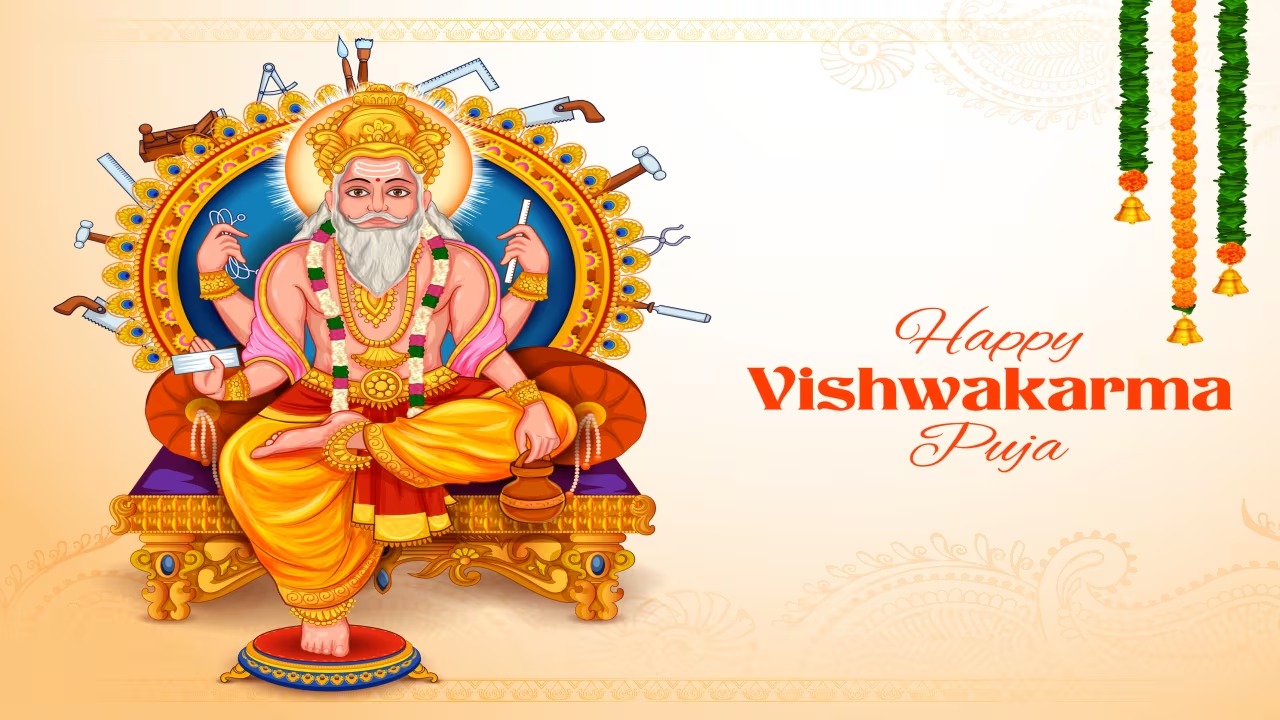Viswakarma Puja, a unique festival dedicated to Lord Viswakarma—the divine architect and craftsman in Hindu mythology—holds profound cultural and spiritual significance across India. Celebrated with fervor by artisans, engineers, mechanics, and factory workers, this festival venerates the spirit of creativity, skilled craftsmanship, and innovation. It symbolizes respect for the tools and machinery that shape human civilization, blending religious devotion with an acknowledgment of technology’s role in progress.
Key Highlights Of Viswakarma Puja
Observed annually on the 17th of September (occasionally 18th depending on lunar calendar), Viswakarma Puja is deemed auspicious for invoking blessings for success, safety, and prosperity in professional endeavors.
The festival is especially revered by those involved in engineering, manufacturing, construction, metallurgy, and various trades—professions linked to invention and manufacture.
Ritual worship includes sanctifying tools, machines, vehicles, and factories by cleaning, decorating, and offering prayers to Lord Viswakarma.
Devotees believe that seeking Viswakarma’s blessings will imbue their work with precision, creativity, and protection from accidents or mishaps.
Mythological And Cultural Roots
Lord Viswakarma is depicted as a divine craftsman, sculptor, and architect who fashioned the celestial weapons and mythic palaces for gods. He is credited with the creation of many divine instruments and edifices, such as:
-
The chariot of the Sun God (Surya).
-
The weapons of Lord Shiva, Vishnu, and Indra.
-
The cities of Dwarka and Lanka, built with unmatched architectural brilliance.
Viswakarma Puja draws from this legacy, honoring the notion that human ingenuity and divine inspiration go hand in hand in shaping the material world.
Rituals And Celebrations Across Regions
In industrial and workshop settings, tools and machinery are cleaned, painted, and adorned with marigold flowers and vermilion.
Special offerings including sweets, fruits, and coconut are made to the Viswakarma idol or symbolic items representing the deity.
Community feasts, cultural performances, and fairs often accompany the prayers, fostering a spirit of camaraderie among tradespeople.
Many workplaces consider this day as a public holiday to enable widespread participation and festivity.
Significance In Modern Context
In today’s technologically driven world, Viswakarma Puja transcends religious ritual to embody:
A moment of reflection on the importance of craftsmanship, innovation, and continuous improvement in mechanical and engineering industries.
Recognition of the labor and skill behind manufacturing, industrial processes, and infrastructure development.
Encouragement for safety consciousness and responsible use of tools and technology.
Impact On Workforce Morale And Productivity
The festival boosts employee morale by fostering a sense of pride and community among workers and artisans. The celebration:
-
Reinforces the cultural identity and dignity of craftspeople and technicians.
-
Emphasizes the link between spiritual belief and professional excellence, motivating higher standards of work.
Viswakarma Puja And Economic Development
As India expands its manufacturing and industrial base under initiatives like ‘Make in India,’ Viswakarma Puja gains added importance by:
-
Marking a culturally meaningful occasion to align traditional values with modern industrial goals.
-
Encouraging investments in advanced machinery and technologies while honoring craftsmanship heritage.
Final Thoughts
Viswakarma Puja is a vibrant festival that beautifully weaves together spirituality, culture, and industry, celebrating the timeless importance of creativity and skilled labor. It serves as a reminder of the divine inspiration behind human ingenuity, fostering respect for tools and technology in shaping our collective progress. For craftsmen, workers, and engineers alike, the day offers blessings that energize and elevate their commitment to excellence.
Sources: Ministry of Culture India, Cultural Heritage Journals, Times of India, Indian Express

